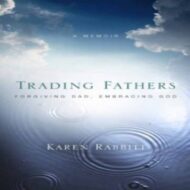Last week, I talked about reading emotions, particularly anger. In fact, we need to do more than read our anger. We need to study.
To study is to understand, to fit into an organized structure of information, to read and think and do experiments until we make sense of a subject.
Libraries are written on anger. A search yields 79 million results. We don’t need to read more than a few of those entries, a couple of books, and the Bible to study our own emotion of anger. Among other information, we’ll learn that everybody gets angry, though some of us deny that. We’ll understand that most cultures teach their boys and girls differently about anger. We’ll get an overview of the kinds of situations that typically provoke anger. We’ll learn some wisdom sayings about anger. “A soft answer turns away wrath” the Bible says. (Proverbs 15:1)
The real challenge is examining our own anger thoroughly enough to deeply understand ourselves. Some of us feel we don’t need to understand. What’s the point? “I’m angry, I’m right, and life, the institution, or the other person needs to change.”

Others of us are too afraid or ashamed of our anger to study it. We just want to get rid of it any way we can. Some of us don’t even let ourselves feel it to start with.
My father was an angry man. If he had been a client, I’d have said he was a rageaholic, based on reports of his use of anger to control his family, including occasional episodes of out-of-control rages. The fear of what he might do in that anger led me to suppress my anger, for years. And fear of making others angry often alters my behavior.
Anger, like any emotion, is a complicated and deep subject. But the more we study our own responses, the more self-control and wisdom we can enjoy in our relationships with ourselves and others.
Jesus, You are the source of all wisdom. More wisdom, please, about our anger.
